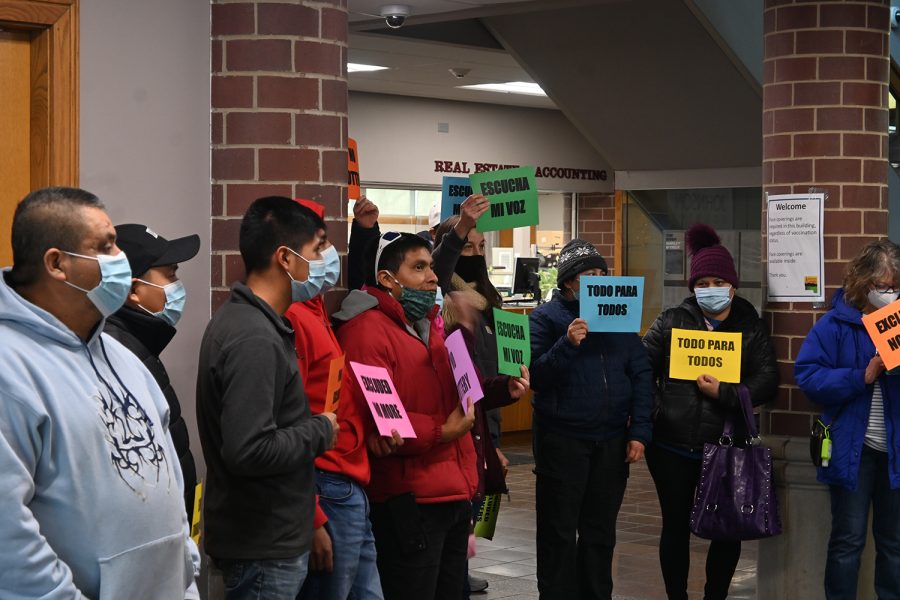As the Iowa City City Council meeting began on Tuesday, more than 100 members of the University of Iowa’s greek community filled the room and spilled into the City Hall lobby to make their voices heard.
Though their protest did not stop the approval of a city ordinance that changes fraternal-housing rules, councilors said they heard the students’ opinions and will seek a solution that would satisfy all parties involved.
“This is not about Animal House, what this has to do with is density in neighborhoods we’ve been trying to stabilize and protect,” Mayor Matt Hayek said. “It’s consistent with our strategic planning. That said, I’m not foreclosing the concept of looking at other options, whether connection with this or following passage of it.”
The measure amends the city zoning code to better define rooming-house cooperatives, such as fraternities and sororities. The amendment allows such group housing to exist in RNS-20 zoned areas, used for older neighborhoods in proximity to the University of Iowa campus, but it also spells out rules and limits on such housing, including changing the density standards to match the surrounding residences.
Existing fraternities and sororities will be grandfathered in under the new ordinance, though new renovations to houses would be restricted.
The council passed the first consideration of the ordinance on April 23 by a 7-0 vote. An ordinance normally requires three readings to pass into law, but the council expedited the process in order to direct staff to examine alternative ways to allow fraternal houses to develop.
Kyle Skinner, the president of Sigma Pi at the UI, said the ordinance was a danger to fraternities and sororities as a whole.
“It’s gonna be the slow death of the greek system,” he said. “To have the [density] limit for a regular family in a fraternity … I think we should be able to stay with the old law or make a new law that helps us out.”
Skinner said those in fraternity and sorority houses were more than just roommates.
“It’s not like an apartment,” he said. “We’re more than just a group of people that know each other.”
Sigma Pi planned on building a new fraternity at the intersection of Governor and Burlington Streets, though the developer, Justin Mulford, said he could not comply with the new density standards proposed by the ordinance.
Steve Lawler, the regional director of Sigma Pi, thought the zoning would have unintended effects.
“It makes building our fraternity economically unfeasible,” he said. “If you’re going to build a typical 50-person fraternity or sorority housing, you’d need to have the lot the size of a football field [under these restrictions].”
Alec Bramel, the UI Student Government City Council liaison, said based on his discussions with students, he hoped the council would not approve the ordinance.
“The density levels in fraternal group houses are there because there is a culture there,” he said. “[Fraternal and multifamily uses] are defined differently, as they should be. Fraternal does not belong there.”
City Councilor Susan Mims said the city heard the recommendations of the greek community loud and clear.
“It’s very clear to me that this council as a whole has heard you here tonight,” she said. “We’re all concerned about this issue.”






